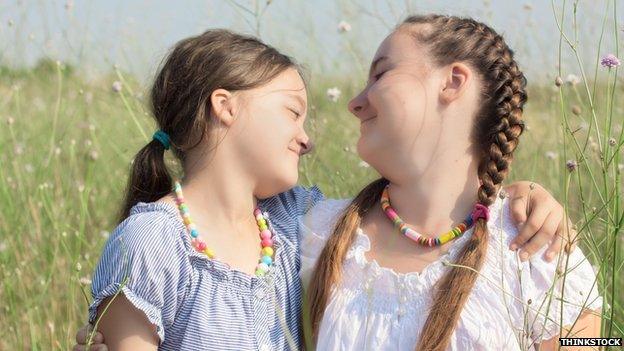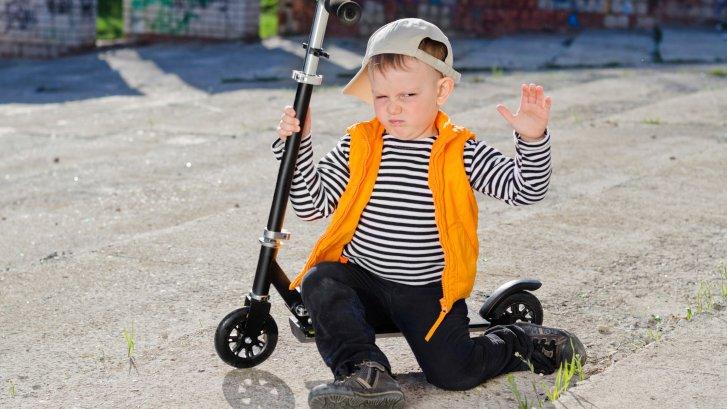England's children 'less free to play out'
- Published

Researchers hailed the benefits of children being outside unaccompanied
Anxious parents in England give their children less freedom to play and go outside than those in many other European countries, research suggests.
England was ranked seventh for child independence in the study of 18,000 seven- to 15-year-olds in 16 countries, by University of Westminster academics.
Freeing children to go out alone in their local area benefited their health and development, the researchers said.
Fear over traffic was the top reason for restricting freedom, they added.
The children and their parents were surveyed between 2010 and 2012 about what they were allowed to do in their local neighbourhoods without supervision.
This included:
crossing main roads
going to places other than school
travelling home from school
cycling on main roads
going out after dark
The study said: "A large proportion of children under 11 years old in most of the countries do not have the the freedom to get about their local area.
"Even the oldest children are restricted in what they are allowed to do, at an age when many of the rights of adulthood are close to being granted, including the right to drive vehicles on the road once the test has been passed."
Overall, Finland was found to be the top-performing country on independent mobility, with Germany coming second.
According to the survey, most Finns can, without supervision:
walk or cycle to places other than school, aged seven
cross main roads, travel home from school and go out after dark, aged eight
cycle on main roads, aged nine
travel on local buses, aged 10
In England, most primary school children are allowed to cross roads without supervision but only 28% to travel home from school and even fewer to go out after dark, travel on local buses or walk to places other than school.
Even at secondary school, less than 25% are allowed out alone after dark.
Ben Shaw, director of the Policy Studies Institute, said: "Obviously, we've got to protect children but part of their development is that we allow them to gain independence.
"People see the change from primary school to secondary school as the time to do it, but not having them do it earlier means there is a spike in road accidents at this age."
- Published7 August 2013
